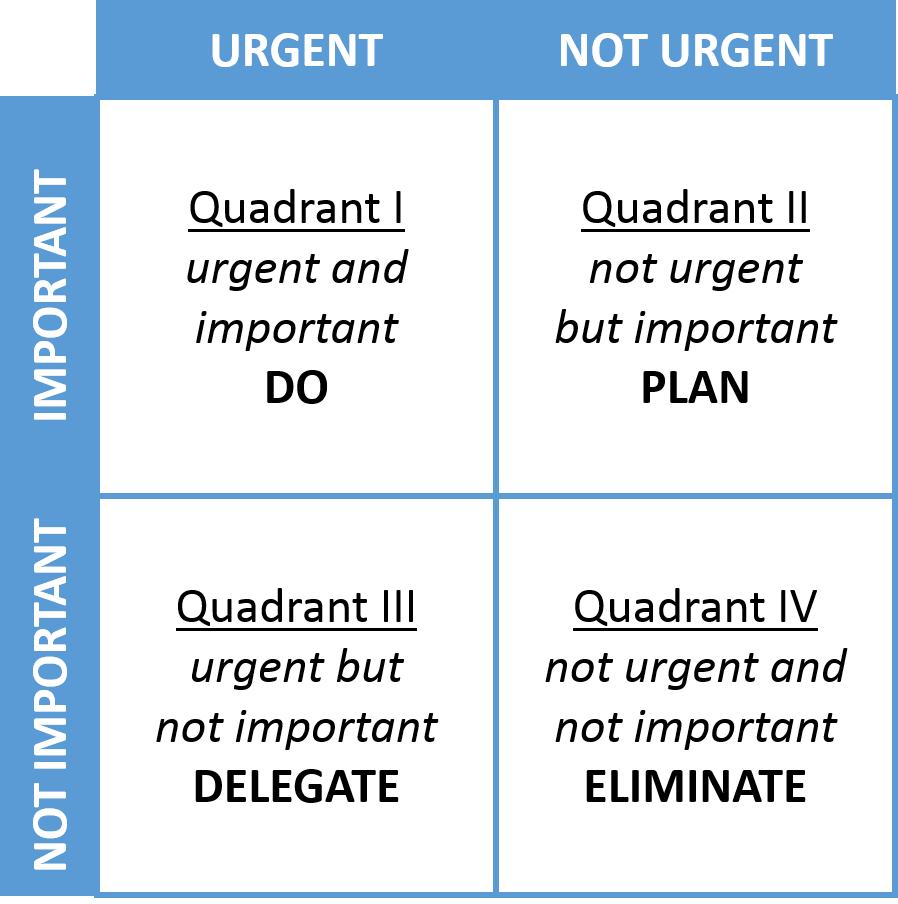The aphorism “time is money” refers to the fact that wasting time is damaging to the financial health of a company. But is it really all that bad?
These statistics from Atlassian’s helpful infographic can help answer that for you:
– 60% or less of work time is spent productively, with the top culprits being 56 daily interruptions and two hours spent recovering from those distractions.
– Excessive emails makes employees check their inbox 36 times an hour and takes 16 minutes to refocus after handling incoming email.
– $37 billion is lost in salary costs for unnecessary meetings for US businesses. (Find more interesting stats on the wasted costs of meetings here.)
– Wasted time costs, on average, $17,000 per employee per year in the US (source: titantechnologies.com)
Much of this waste boils down to something as simple as an employee’s time management skills–which, when properly addressed, can be vastly improved.
Nearly everyone has time management skills to some extent, but few people master it. While lacking this skill can cause stress in one’s personal life, in the workplace, it can lead to a serious crisis.
What Are Time Management Skills?
Time management skills are anything that helps save time, which at work translates to mostly organizing and prioritizing tasks. An employee with sufficient time management skills can do their job properly and meet deadlines without undue stress or reliance on others. The idea is to be so on top of your tasks that you can act proactively to truly support your personal and professional goals.
In the workplace, time management is a comprehensive activity. In addition to organizing a schedule, the employee needs to account for what the company’s priorities require and how the input of other employees will affect the timeline.
Many times this skill is employed by a manager on behalf of a subordinate, such as planning and scheduling. Managers therefore need optimal time management skills, both for their own activities and those of others.
Why Are Time Management Skills Important?
Besides saving the time and money highlighted in the beginning of the post, time management skills are critical for reducing stress across the organization and producing better work without the rush and sub-par work that occurs when time isn’t managed properly.
All businesses are subject to time limitations, and most employees have tasks that must be completed within these limitations. When a worker does not deliver on time, this affects the entire organization. Similarly, if an employee needs to rush to finish a task on time, the quality of their efforts often suffers. When other workers need to compensate for late delivery and/or poor quality, stress levels increase for these coworkers, even if they are proficient with their own tasks.
Of course, an employee who submits late or substandard work also suffers stress. In addition, weak time management skills tends to leave workers with less personal time and a poor reputation, and reduces their confidence when considering taking on new responsibilities.
Time Management Skill Examples
There is a difference between time management skills and tools. Some of the skills that permit efficient time management include:
Planning/scheduling
This step involves composing a list of all the tasks that need to be performed. This requires knowing about all of the tasks under the responsibility of the employee, including work assigned by superiors or which needs to be delegated to others. These activities involve associated skills such as communication and leadership. The final step of the process requires arranging priorities according to a timeline. Some tasks require the feedback and/or contribution of others, and this is another instance where communication skills are necessary. Scheduling can be made easier through the use of software like Todoist
Prioritizing
Once a task list is formed, the next phase is to put each item in order of priority. Factors such as deadlines, duration, and urgency come into play here. It is also important to find out if there are tasks being performed by other employees which will interfere. One tool that is of use in the setting of priorities is the Eisenhower (or Important-Urgent) Matrix
Stress management
One of the effects of constant work is stress. Even the most efficient schedule requires effort, which is tough on employees both physically and mentally. As a means to support a worker’s continued output and welfare, stress management techniques should be taught and encouraged.
Record-keeping
Besides the planning-prioritizing-scheduling process, record keeping is another skill that saves a lot of time. The search for missing information and items is a major waste of working hours, so developing a system that makes searches quick and intuitive is a valuable move. There is also software, such as Legito, which can help in this regard.
In comparison, there are a number of tools that an employee can apply to implement these skills:
Creating Better Time Management Habits
Some great ideas for building better time management Setting goals at the beginning of each day; handwritten lists – so you can easily ignore anything on your phone; and maintaining an organized workspace and file system. OrganizedWorld.com notes that the average office employee spends 1.5 hours a day (6 weeks per year) looking for things.

Processes: For example, the GROW model for setting goals and problem solving; the Eisenhower (or Important-Urgent) Matrix for establishing priorities; and yoga breathing exercise for relaxing.
Apps: There are a plethora of apps that can help with time management for your HR teams, like Todoist, any of the many Pomodoro technique apps, and work management tools like Trello, Monday.com, Asana, and many others.
Software: Time management software for organizations is another growing trend that enables your companies to keep your employees on track and plan work schedules to improve business efficiency.
The Relevance of Remote Work
The effect of COVID on remote and hybrid work has been remarkable. At the beginning of the pandemic, reliance on work from home (WFH) grew dramatically, and subsided somewhat in 2021. Still, a general shift to more remote and hybrid work seems to be permanent.
This has been good news for both employees and businesses. For instance, hybrid employees have the highest level of engagement compared to remote and on-site workers. Interestingly, the majority of employers state that the move to remote work has been a success for their business.
These advantages hint at the benefits of WFH for time management. Remote and hybrid employees seem to avoid many of the factors that contribute to poor time management. As one example, 68% of remote workers cite fewer interruptions and a quieter work environment as reasons for being more efficient than on-site workers.
Time Management for Remote Workers in 2022
To maintain these advantages, remote workers need to ‘double-down’ on the types of time management skills that are normally used. The difference is that, in 2022 and beyond, WFH employees need to be more self-motivated and independent than their on-site associates.
Without a manager looking over their shoulder, or the influence of the competitive coworker in the next cubicle, remote workers are almost on their own when it comes to handling time effectively. To obtain the skills that they are lacking, it’s a great idea for remote employees to work with coaches.
Time Management Coaching
Efficiently managing time at work is a very particular challenge. There are workers who meet every deadline but are constantly nervous and irritable. Other employees can set up a great work plan for every day but never stick to it.
Coaching is custom made to address this challenge. The coach works directly with the individual to understand their personal areas of deficiency, and then guides them to change their habits. A good time management coach will be up to date with all the latest and best techniques for time management, and know which digital tools are the most useful for a certain client. Finally, and perhaps most importantly, a coach motivates accountability for the employee, a factor that can increase the chance of reaching a goal to 95%.
With the help of coaches that specialize in these skills, companies have an easier time eliminating the waste that results from poor work habits.
Part of the Profitability Puzzle
Time management is one of the top three soft skills that employees will require in 2022. The other two are communications and productivity. Together, these skills are expected to form the ‘secret sauce’ to successful business in the year ahead:
– Productivity is essential for properly completing specific tasks and responsibilities
– Time management helps individual workers handle a variety of tasks and responsibilities
– Communication is central for dealing with others in the distribution of tasks and responsibilities
By optimizing these skills across an organization, businesses can ensure that employees are able to perform their jobs more efficiently and with greater profitability, especially when compared to companies that don’t invest in these skills.
The Challenges of Time Management Skills Programs
L&D programs for time management skills are sometimes complex to administer. Employees have varying levels of time management skills, so providing the same course to everyone is literally a waste of time. Secondly, L&D programs can conflict with an employee’s normal schedule. Obtaining buy-in from management for a time management skills program should therefore keep training time to a minimum.
Tackle Time Management Skills Challenges with GrowthSpace
Every employee has unique strengths and weaknesses, and the same goes for time management skills. Chances are that each worker could use improvement in a particular element of time management, for instance, by being more organized or less stressed.
GrowthSpace is here to help. With a technology-based approach to soft skills training, our L&D platform enables personalized development programs such as time management. More than that, GrowthSpace’s talent development solution connects your employees with the most qualified time management coaches (experts) from around the world.
This article is part four of a 4-part series on the top soft skills employees need in 2022.
- Read the original article on the 3 most in-demand soft skills
- Learn why communication skills are the most important skill today
- Get the dirt on why productivity skills help create a company culture built on learning
- Check out these top employee development ideas for better employee growth




